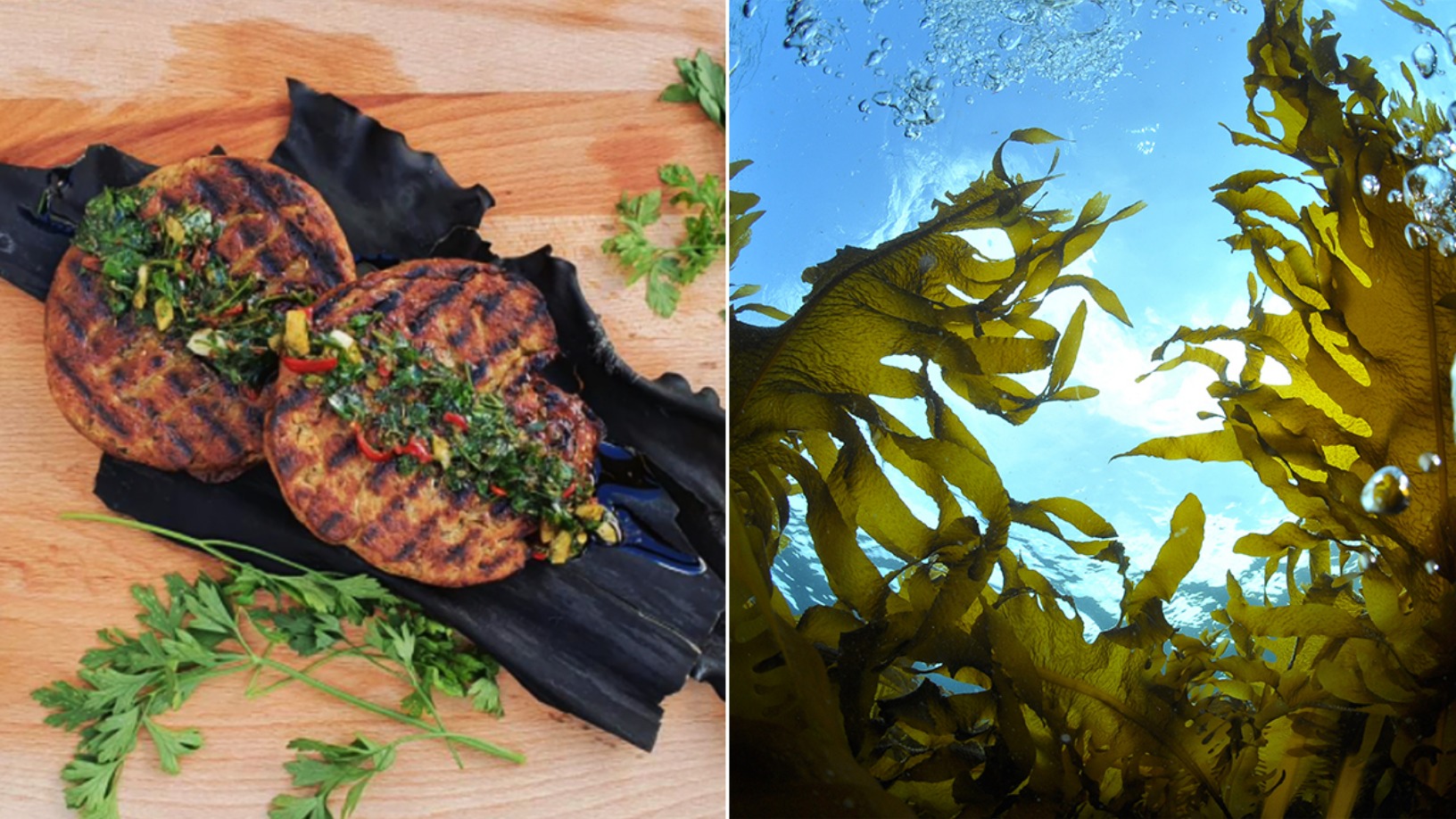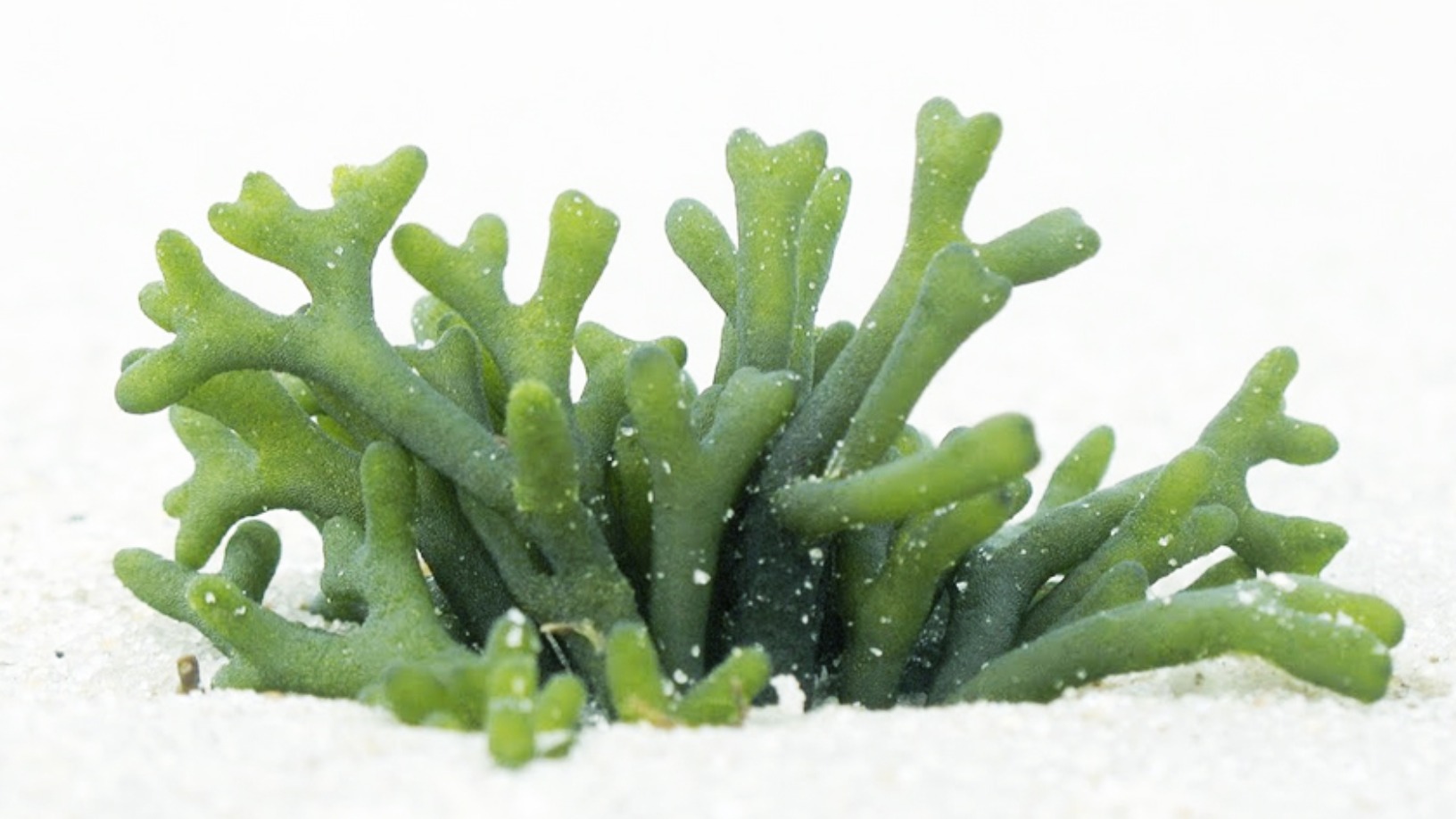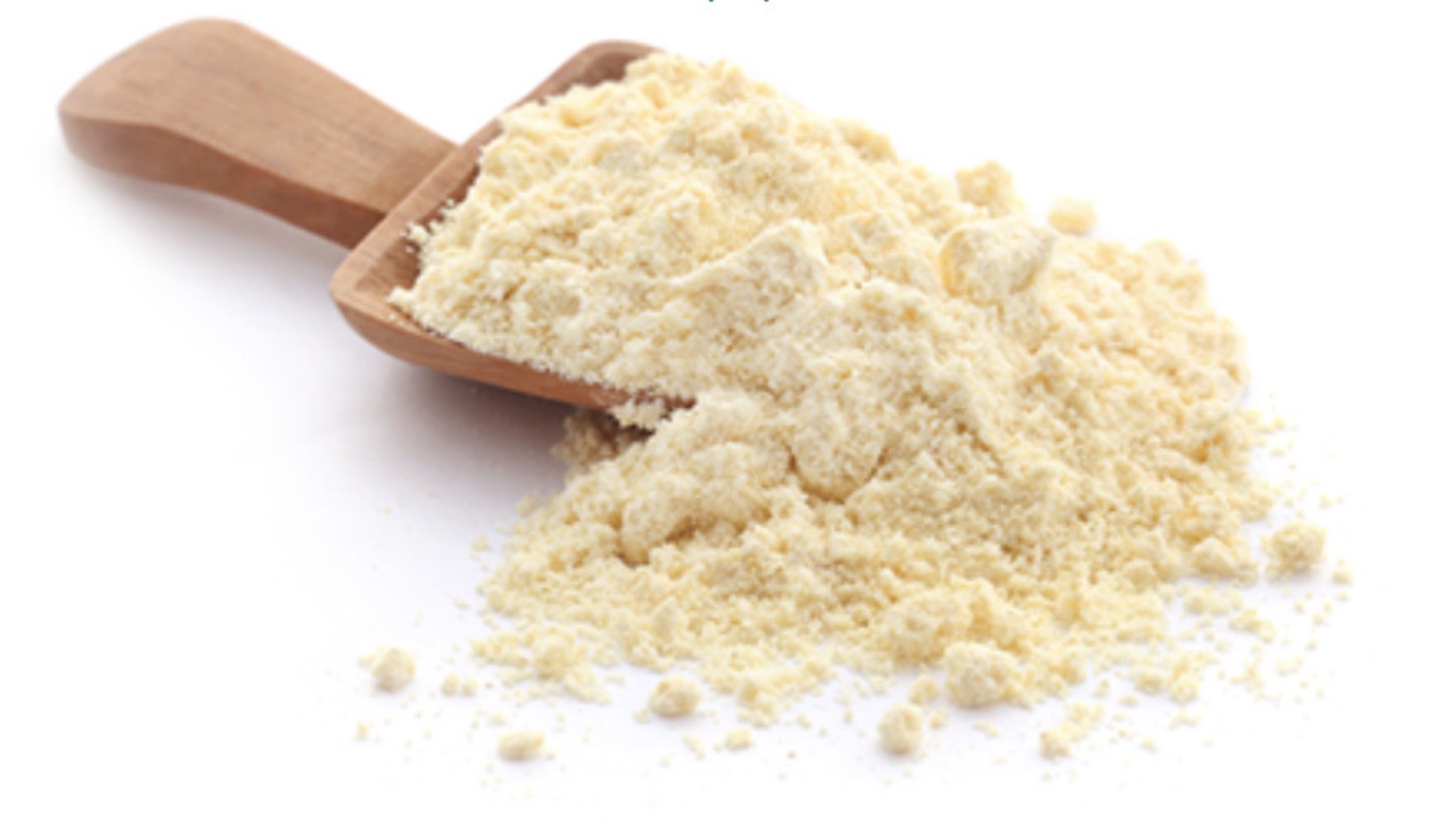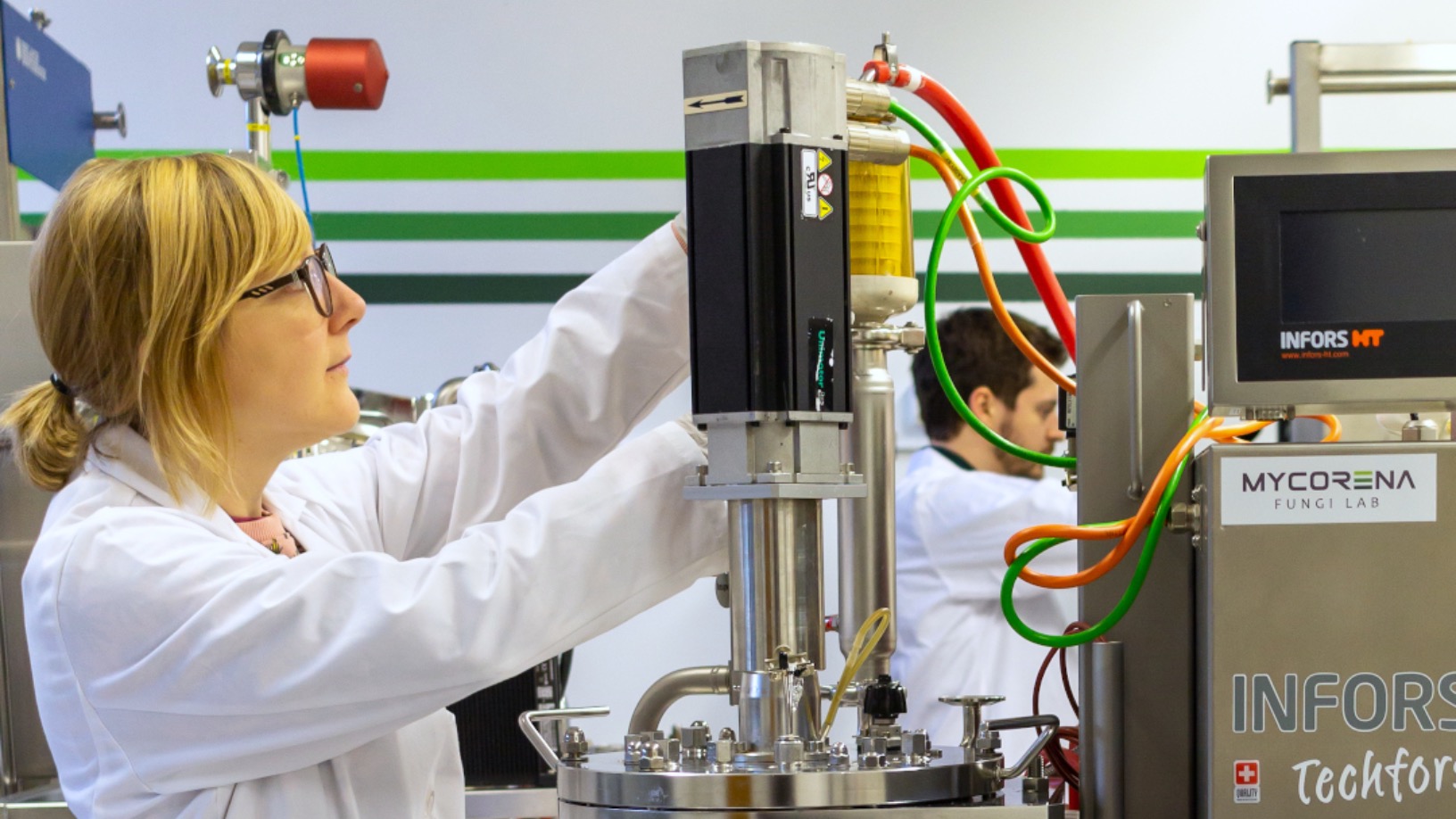Seaweed has long been a staple of east Asian cuisine, usually as side dishes rather than as a primary source of protein. Today, algae have become a popular ingredient for plant-based food producers looking to leverage the nutritional benefits of natural food ingredients.
In May 2020, Dublin-based Plantruption, the country’s first foodtech to use seaweed to make plant-based food, began selling its Irish Seaweed Burger product range at SuperValu outlets, the largest homegrown supermarket chain in the country. The fish products, made from sustainably sourced local seaweed, are now also available at health food and vegan shops and restaurants in Dublin and Cork, in a total of 30 outlets.
“There is a real gap in the market for something plant-based that goes back to basics, is nutritional, high in protein and unprocessed, and that's been our key selling point,” CEO and founder Jennifer O'Brien told CompassList in a recent interview. “Demand has been much higher than expected, and the biggest problem is that we have reached our production capacity,” she added.
The startup’s plant machinery has just been upgraded to make the burgers faster to supply to 100 stores. Each 200g-pack of burgers contains 30g of proteins and retails at €4.50, an average price-point for plant-based food in the EU.
Besides undisclosed feasibility funding from the Irish state-owned innovation company Enterprise Ireland, Plantruption has also just received its first pre-seed funding of $275,000 from a US investor. With the extra funding, O'Brien hopes to launch Plantruption products in the US eventually. The startup is currently participating in accelerator programs.
From healthcare to food
O'Brien's journey began with seaweed therapy at the family’s holiday home on the west coast of Ireland. During the summer holidays, she would take seaweed baths as therapy for her chronic asthma. “They were incredible. I got such relief by absorbing all the nutrients and minerals, and later I started using seaweed in my diet. Now, I don't need to use medication or rely on steroids,” she said.
O’Brien left her real estate management job to set up Plantruption in 2019 while completing her MBA program at Trinity College in Dublin. She began working with a plant-based food consultant to experiment with different natural ingredients to create her first seaweed burger, tested in various local farmers’ markets during the summer/autumn season.
There is a real gap in the market for something plant-based that goes back to basics
Noting that people living along the Irish west coast had been using seaweed in broths for centuries, O'Brien conducted further research on the potential use of seaweed in foodtech as part of the MBA program. The research project laid the foundation for Plantruption.
“Seaweed's benefits are sometimes too long to list; it is super low-calorie and super nutritious. It’s high in protein, iodine, iron, vitamin C antioxidants, soluble and insoluble fibers, vitamin K, vitamin B12 and a range of other nutrients important for human health,” O’Brien said.
Besides seaweed, the burgers also contain “tempeh” (fermented soybeans) and Irish vegetables, with flour and mushrooms used as binding agents. “We wanted to get the highest protein content possible and use locally sourced ingredients as unprocessed as possible,” she added.
With nearly 90% of the world’s marine fish stocks now overexploited or depleted, according to the World Economic Forum, the idea was a no-brainer, given seaweed's "taste of the ocean,” said O'Brien, whose innovation won third place in a local “Dragons' Den” startup competition.
Biodegradable packaging
The turning point for Plantruption's swift development came when O’Brien joined the SuperValu local Food Academy accelerator program in October 2019. Seven months later, the Irish Seaweed Burgers were distributed for sale at nine SuperValu stores in Dublin and Cork.
“The program taught me everything about food safety, food packaging, branding and marketing that enabled the initial journey to get the product to the shelves,” O’Brien said. A key selling point was the use of 100% biodegradable packaging, an essential part of the brand’s commitment to ocean sustainability.
National Geographic estimated that 91% of plastic waste is not recycled, although much of it is recyclable, with oceans ending up as the dumping ground for plastic packaging worldwide. With long-term sustainability at the forefront, O’Brien decided to use only fully biodegradable packaging, currently supplied by a company in the UK.
"The solution we found will break down completely in the ocean within 14 weeks, and is also recyclable and is a compostable material; so depending on where our customers are, there is always sustainability,” she said.
Limited supply
Plantruption currently sources the seaweeds, such as the high-protein spaghetti and kombu varieties, from a medical doctor who has a license for sustainable algae harvesting on the west coast of Ireland. O'Brien will apply for a commercial license as soon as they become available in Ireland, but the process could take 3–5 years.
“Ireland has a serious licensing issue around seaweed production because the owners of the coastal land hold the seaweed rights. Most only take a little for personal use, so there is an abundance of wild seaweed available right now because it's not commercially farmed,” O'Brien explained.
A key selling point was the use of 100% biodegradable packaging
Should demand outstrip the small amounts currently being harvested before a commercial license is obtained, Plantruption would have to source more supplies from large commercial producers like Norway, but Ireland has to be “the first port of call,” she added.
Ireland is home to some of Europe's most extensive kelp forests, with the algae growing naturally in abundance in the wild without the need for any freshwater or land for cultivation.
Plant-based whole fish
Plantruption will soon launch its second product line, plant-based goujons. The mock fish goujons will be made of soy and breadcrumbs. The pack of four goujons will also contain 30g of protein but will retail at €4 per pack. Other products in the pipeline include a whole fish substitute, currently being developed by Plantruption in collaboration with a Dutch research institute.
“In Ireland, there is such a fish and chips culture; we think a plant-based whole fish will be a big seller,” O'Brien said. “As it is not recipe-based like our other products, we need to use technology to create the texture and structure. We will probably use microalgae, but the result will be more in line with the look and feel of a fish."
Once developed, Plantruption plans to target traditional restaurants or hotels that want to serve battered plant-based fish “but very similar to the real deal,” she added. Plantruption has already conducted market research to identify the first potential target markets for seaweed food in Europe at a Google Adopt a Startup program.
The startup has also just joined the EU’s EIT Food acceleration program to be completed in October. A seed funding round is planned at the end of 2021 to finance new production facilities needed for expansion into Spain and another EU market like France or Italy.
“We think there is a huge gap in the market, particularly in markets like Spain, where there is a huge consumption of fish but where traditionally, competitors have stayed away and moved into the Nordic countries and Germany,” O’Brien said. However, there is no plan to expand into the neighboring UK market because of trading uncertainties post-Brexit.













